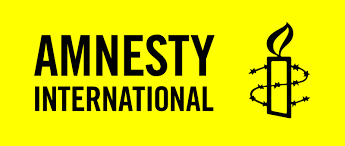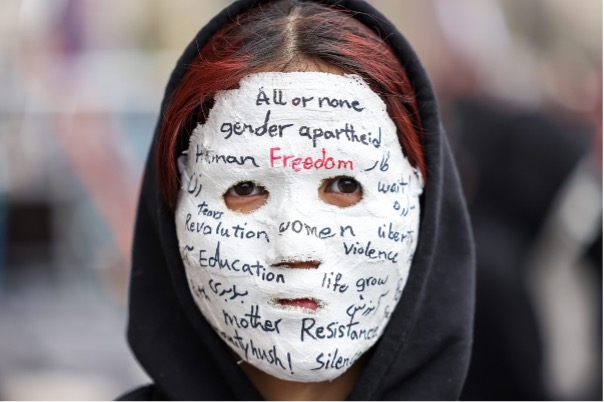AUTHOR: Maria Inês Afonso
Since the Taliban returned to power in 2021, following the withdrawal of United States troops from the region, approximately 1.4 million girls have been deprived of their right to education. This right is enshrined in Article 26 of the Universal Declaration of Human Rights, a commitment made by all 193 United Nations member states. Why, then, have we allowed this fundamental right, among others, to be continuously and repeatedly violated by an autocratic regime that justifies gender-based oppression through its interpretation of Islam?
Robina Azizi, an inspiring 19-year-old, shared how she was forced to leave behind everything she knew to escape Taliban persecution. She stated, ‘The Taliban take girls into captivity and force them into marriage.’ As a writer who uses her art to oppose and condemn the Taliban, Robina had no choice but to flee: ‘If they find your writings, they’ll kill you too.’
The Taliban not only restrict girls and women from participating in society but also erase them from the legal system, employing violent and inhumane punishments to achieve these aims. To exclude girls and women from any form of civic involvement, the Taliban limit their access to public spaces like parks and gyms, mandate that they wear a full-body hijab whenever in public, and ban them from all levels of education. Furthermore, they bar women from engaging in political decision-making—dissolving the Ministry of Women’s Affairs and replacing it with the Ministry for the Propagation of Virtue and Prevention of Vice—and have shut down all shelters and support networks for survivors of gender-based violence. These actions, among others, are documented in Amnesty International’s 2023 report, “The Taliban’s War on Women.”
Additionally, by rejecting the Afghan Constitution of 2024 and abandoning the Elimination of Violence Against Women law, the Taliban effectively dismantled the gender equality that had once been guaranteed, stripping away all existing legal protections. According to the aforementioned report, women who protest or defy Taliban policies face arbitrary detention and are frequently subjected to kidnapping, mutilation, or even execution. These heinous acts result in women being abused and tortured for alleged ‘moral violations,’ all while being denied access to legal representation and any contact with their families.
How long will we allow this systemic oppression to persist? History demonstrates that even when the world appears fragmented and polarized, there is always space for unity and respect. That is why the global community must unequivocally condemn and sanction this regime, ensuring that the aspirations and dreams of these girls can one day come true.
As we know, the UN Security Council has adopted resolutions, including Resolution 2681 (2023), which condemned the Taliban’s ban on Afghan women working for the UN and urged the reversal of policies restricting women’s rights. However, it is undeniable that these resolutions lack tangible impact, as they fail to result in meaningful and truly effective consequences. Moreover, the diplomatic isolation enforced by the refusal of most member states to recognize the Taliban regime has been undermined by countries such as China and Russia. While China has established bilateral working groups with the Taliban, focusing on economic rebuilding and humanitarian aid, Russia has invited Taliban representatives to international forums, displaying indifference—or perhaps negligence—towards the blatant disregard for human rights demonstrated by this group since it came to power.
But not all hope is lost. In January 2025, the International Criminal Court Prosecutor took a bold step by applying for arrest warrants against senior Taliban officials, citing crimes against humanity, particularly gender-based persecution. Yet, with justified skepticism, one must ask: Are these actions enough to truly hold the Taliban accountable under international law?
The international community must wake up and realize that it needs to act urgently, as every day that passes is a day ‘too late.’ Governments, from north to south and east to west, must slam their fists on the table and declare, ‘Enough is enough.’ Not only must they freeze Taliban assets and impose travel bans on Taliban officials, but they must also assist Afghan women in preparing asylum applications, allowing them to rebuild their lives and finally live in peace and freedom. Furthermore, these girls and women must be empowered to share their stories, as amplifying their voices raises awareness and contributes to the solution. We can all be drivers of change. For instance, we can participate in boycotts of events that recognize and legitimize the Taliban regime, engage in social media campaigns, sign and share petitions, and take part in protests and demonstrations. What we cannot do is stand still!
In a nutshell, Afghan women do not need our pity or solidarity. They need us to end our silence and complicity in these atrocities. All they want is to reclaim their lives and their futures. Justice must prevail. The time to act is now!
Sources of the article:
https://news.un.org/en/story/2025/01/1159366
https://press.un.org/en/2023/sc15271.doc.htm
Source of the picture:

